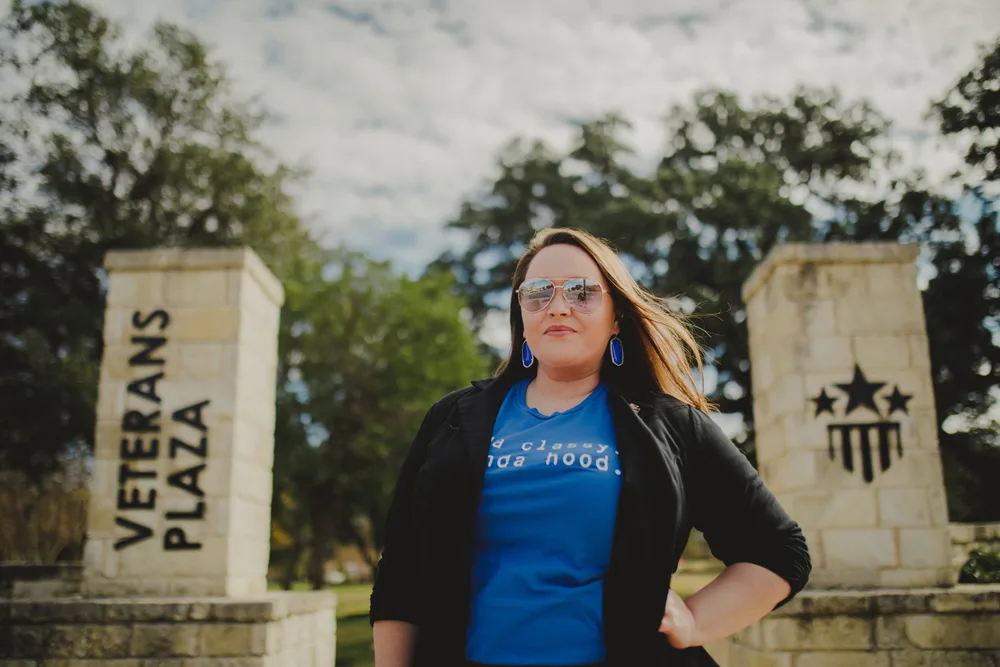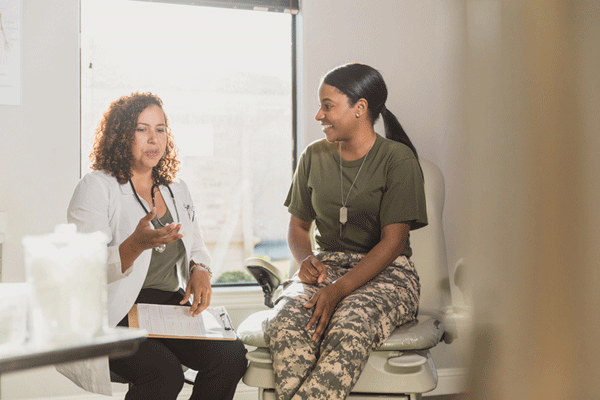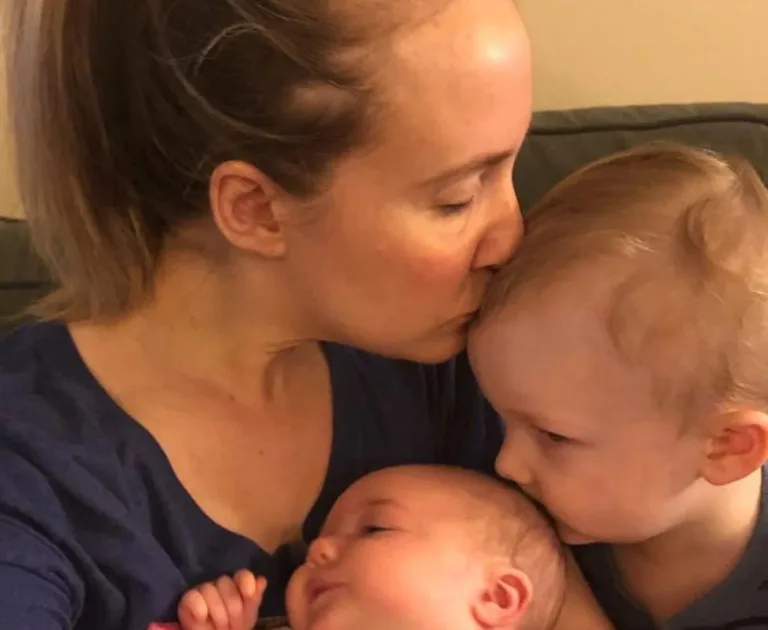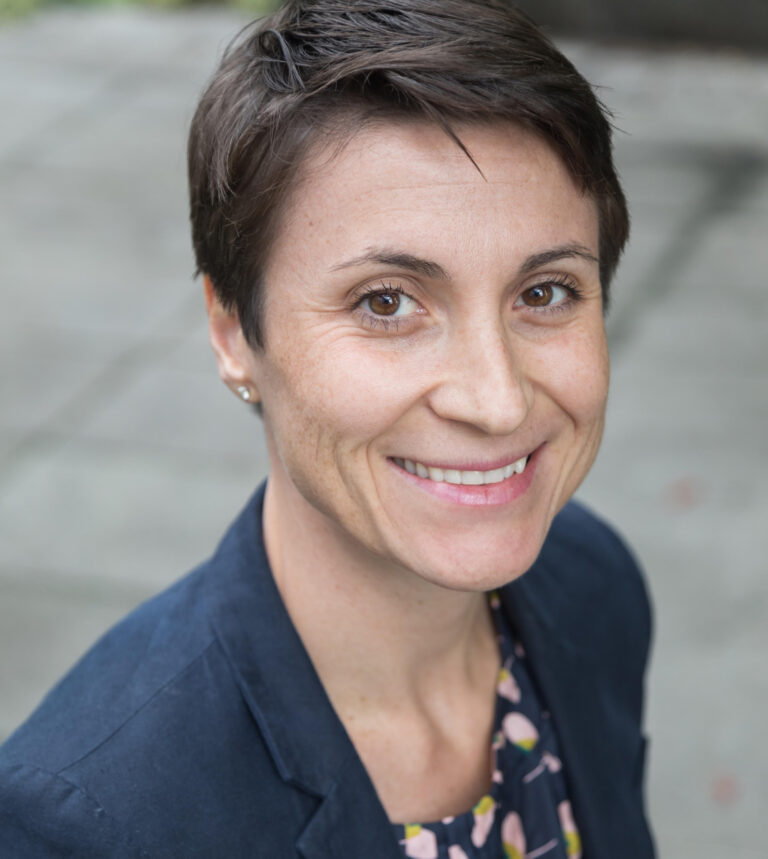As told to Nicole Audrey Spector
We were married in our early 20s, and we tried for a healthy pregnancy for about four years.
In that time, I had 17 miscarriages.
I went to doctor after doctor to try to figure out why I kept losing my pregnancies. Eventually, I was diagnosed with polycystic ovary syndrome (PCOS), endometriosis and uterine fibroids. This all helped explain the miscarriages — as well as my horribly heavy and painful periods. I was offered treatments for the symptoms, but not the infertility. We tried the treatments but none of them helped.
I was an Army spouse, and the healthcare I received was through Tricare, which I was on because of my husband’s military status. But the insurance fell short of what we needed to have a family. It didn’t cover in vitro fertilization (IVF) or any other fertility treatments. We would have had to cover those expenses out of pocket. It was just too much money.
Even if we had been able to afford fertility treatment, the odds, doctors told me, that I would carry a pregnancy to full term, were slim to none.
I was open to adoption, but my husband wasn’t. He wanted biological children only, which put a huge strain on our marriage, and we wound up getting divorced. He married someone else and had biological children soon after.
After my husband and I split, I decided to join the Army myself. I was inspired to enlist partly because I knew how much I would miss the military community. It had become like home to me.
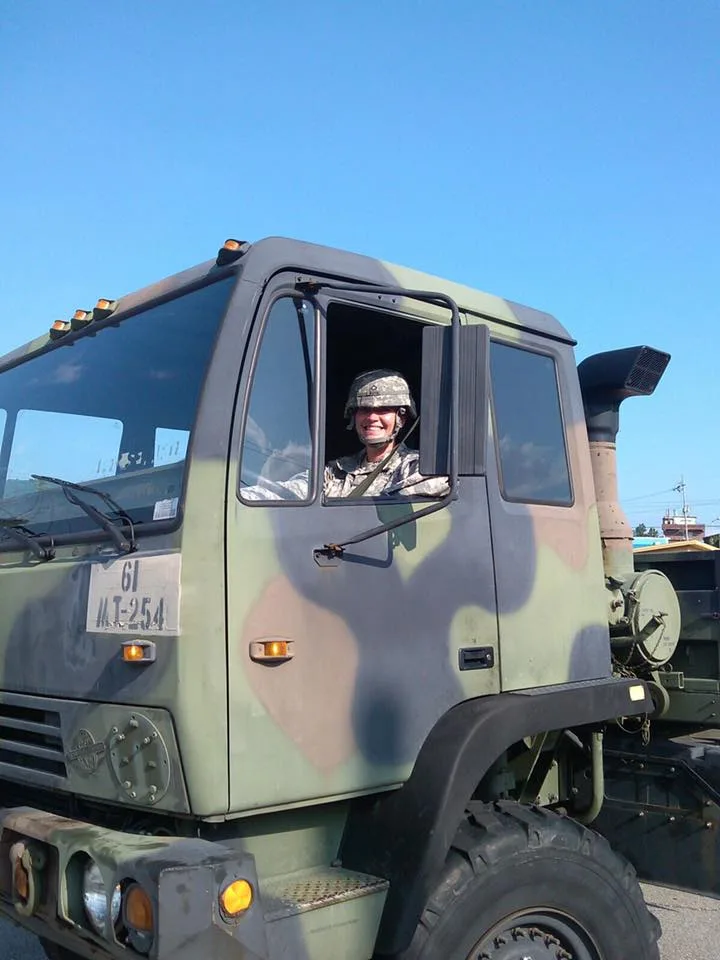
At the time of my decision to join the army, I weighed about 400 lbs. I overhauled my diet and exercise regime and got fit enough to meet the military’s standards to go through basic training.
During basic training, I didn’t get my period. I was told that this was normal, as the physical and mental toll can disrupt your menstrual cycle.
But I was eventually stationed in South Korea, and I still had irregular periods. I saw a doctor on base who recommended I get the birth control shot to regulate my cycle. I got it, and my periods then became semi-regular.
I was sexually active while on duty in South Korea, but I was on the shot. I didn’t ever think I’d get pregnant. But lo and behold, after a couple months of missing my period, I took two over-the-counter pregnancy tests. Both came back positive.
I was stunned. I desperately wanted the pregnancy to last, but I had no hope that it would. I’d never held a pregnancy past 10 weeks, so I expected to lose this one at any moment.
To my astonishment, I didn’t lose the pregnancy. Closing in on my second trimester, I saw an OB-GYN who confirmed the fetus had a good chance of making it to delivery!
I remained on active duty but didn’t stay in South Korea, since my duty station there was rural and very small, and did not offer OB-GYN care. I was moved to a new duty station stateside.
When I arrived at my new duty station, I tried to get in with the OB-GYN on base. I was told there wasn’t room for me, and I had to see someone in the community. But because I was active duty, I had to be seen on base, and the community request was denied by Tricare. Finally, after six weeks of not seeing a doctor, at week 36 of my pregnancy, I was able to get into the OB-GYN on post. Because I hadn’t been with this clinic for my pregnancy up to that point, and because I was squeezed in, I wasn’t assigned a doctor, and I saw someone different every time.
Although the situation wasn’t ideal, everything worked out in the end. I now have an amazing daughter, and I’m so thankful.
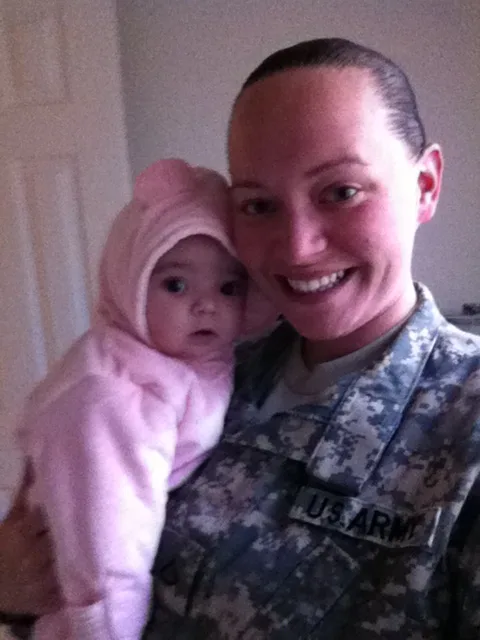
I left the army when my daughter was 2 years old. I continued to have extreme pain and heavy bleeding when I was on my period. Eventually, I met with an OB-GYN who told me that the only cure for me was endometrial ablation.
The doctor told me that, as a result of this procedure, I would never be able to have children again. I was crushed — but the pain was even more crushing. So I went through with the procedure that I was told would solve everything.
In short, the ablation did not solve a darn thing. Though I no longer had periods, I still had horrible cramping every month when a period would normally occur.
One day, the pain was so bad I fainted. Twice.
After I fainted, my (second and current) husband took me to the ER at the VA. Doctors there took X-rays and performed an external ultrasound of my abdomen. All looked normal, they said. To which I said, “Well, it should not. I had an ablation. It should look weird!”
They told me I probably had diverticulitis and sent me for a colonoscopy, which came back clear.
After more frustrating back-and-forth with the VA, I managed to book an appointment with an OB-GYN who did a transvaginal ultrasound and said everything looked normal. Again, I was baffled by this conclusion because of the ablation.
“I can give you naproxen,” the OB-GYN said, after I explained how awful the pain was. Naproxen is an anti-inflammatory more commonly known by its brand name, Aleve. Clearly not powerful enough for what I was experiencing.
“You don’t understand,” I pleaded. “The pain is so bad I passed out!”
“Sounds to me like you need to toughen up,” the doctor said.
Yes, I, a military veteran, was told to toughen up. I was livid. But I put up with the pain for two more years. What else was I to do? I was at the mercy of doctors who kept dismissing me.
When I finally returned to an OB-GYN — one that was not covered by by the VA because it was nearly impossible to be seen by one within the VA — my pain was finally taken seriously. Thorough examination revealed that every month, when a period would normally occur, my uterus was filling with endometrial fluid and pouring into my abdomen. The ablation had partially failed.
A radical hysterectomy was urgently needed. I agreed to it, and soon after, the pain vanished.
Although I am healthy and pain-free now, it still angers me that I was told by a doctor in the VA system to toughen up. It still angers me that it took years for me to get an accurate diagnosis — and that I had to pay out of pocket to get it.
I’m angry not just for me, but for all the other women out there who get tossed aside by medical experts. I urge them to stand up and say no. “No, I won’t ‘toughen up!’ I will receive the care I deserve so I can live a happy life.”
Have a Real Women, Real Stories of your own you want to share? Let us know.
Our Real Women, Real Stories are the authentic experiences of real-life women. The views, opinions and experiences shared in these stories are not endorsed by HealthyWomen and do not necessarily reflect the official policy or position of HealthyWomen.


